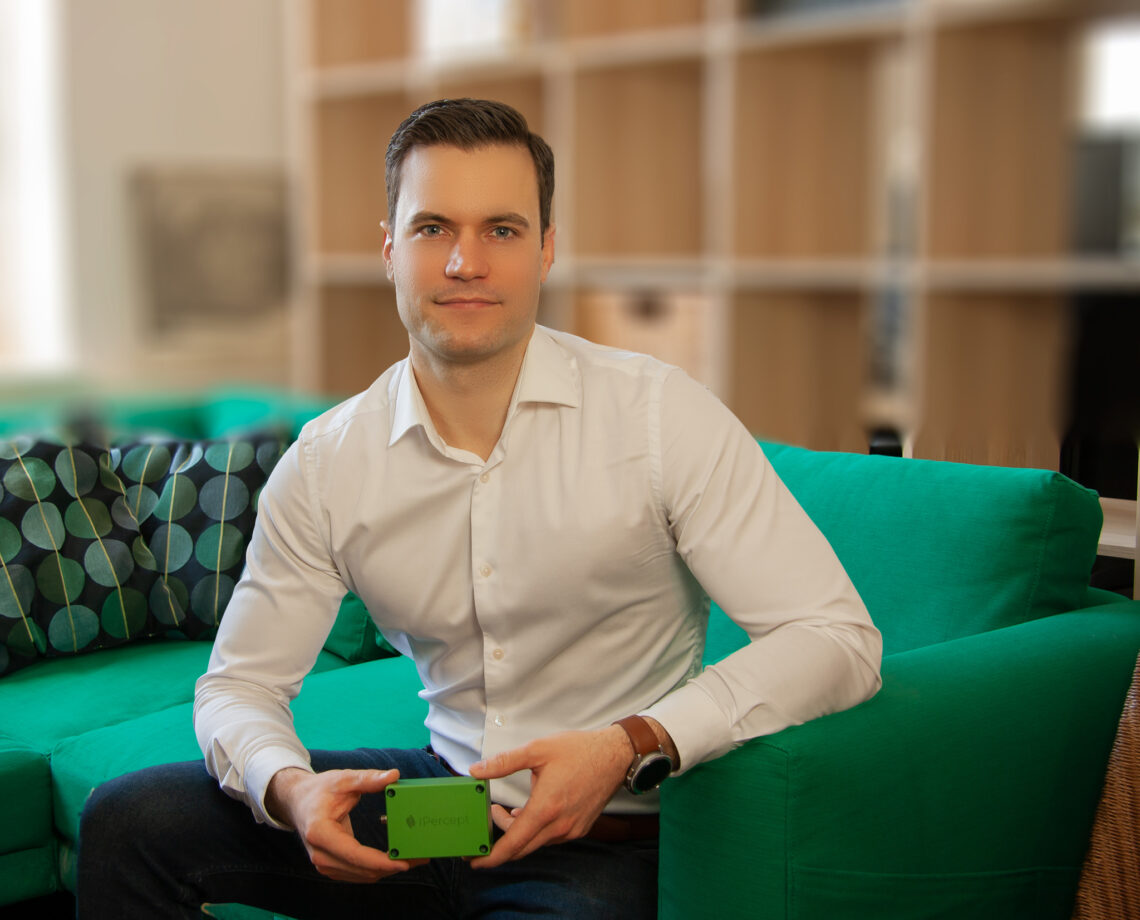IPercept Technology, a spin-off from Sweden’sKTH Royal Institute of Technology in Sweden, has reinvented how maintenance and operational improvement can be performed for complex industrial machines. The company is one of the select scale-ups that pitched to attendees of the Sweden.eu Deep Tech Entrepreneurship conference in Stockholm June 1st and 2nd.
“Think of us as an AI-enabled fitness tracker for heavy industry machinery,” says CEO and co-founder Karoly Szipka, PhD. He and his colleague KTH Professor Andreas Archenti, founded the company in 2019 and commercialized the solution in 2021. The company uses a combination of IoT and AI to avoid expensive breakdowns of the machines that serve as the backbone of manufacturing in sectors such as aerospace, automotive and mining.
While predictive maintenance solutions that focus on attaching sensors to simple machines have been around since the 1970s IPercept targets complete and complex machines that can’t use one-size-fits all approaches. The Swedish startup focuses on production machines used for metal cuttin and forming, industrial robots and industrial cranes.
“We are coming at this from a mechatronicsengineering perspective and then adding in data science,” he says, helping to ensure that customers are served up the right data.
IPercept’s devices are tailored to the needs of specialized machines and can be installed under an hour by the customers themselves . Data is sent to the Cloud where AI built on domain knowledge is used to provide actionable insights via a user-friendly dashboard. Whereas traditional solutions require one sensor per component, IPercept’s technology uses only one sensor per mechanical system or machine. The IPercept sensing device, which is about the size of a deck of cards, can detect and identify micrometer-sized mechanical degradation that could lead to bigger problems or complete system shut-downs.
Szipka says that nearly half of Sweden’s largest manufacturing companies are currently using its products “and within a year we expect to work with nearly all of them.”
Competitors include large traditional industrial measurement companies. Tools offered by these companies are highly manual, require high levels of training, long machine downtime to carry out tests and aren’t scalable, says Szipka. For that reason, manufacturers usually do only two inspections per year. I Percept’s solution allows quick and automated testing every week without special training, he says.
IPercept received support from KTH Innovation on applying for patents, market verification, prototyping, writing its business plan, developing its go-to-market sales strategy and with grant applications, said Szipka. The company has received several grants from the Swedish government and has raised private capital to accelerate the roll out of its innovation.
Lisa Ericsson, the founder and head of KTH Innovation, was a speaker on a panel about new models of collaboration moderated by The Innovator’s Editor-in-Chief. KTH is experimenting with new ways of working with startups and Ericsson says she believes Europe’s universities can and should play a bigger role in the Continent’s deep tech ecosystem.







